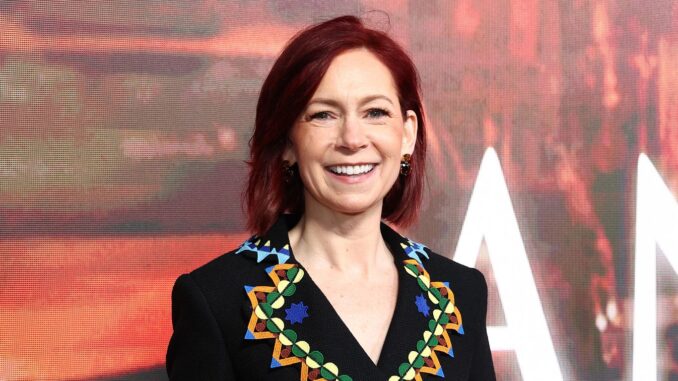
The weight of a golden statuette in hand is often described as a moment of profound validation, a tangible symbol of recognition for years, sometimes decades, of dedicated craft. For Carrie Preston, her Emmy win wasn't merely a personal triumph; it was, in retrospect, a finely tuned prelude, a confirmation of the incandescent talent that would eventually blossom into the eponymous success of Elsbeth. Her reflections on that significant moment, woven with the fabric of her character's improbable journey, tell a story not just of an actress at the peak of her powers, but of the enduring appeal of delightful eccentricity.
Preston's Emmy, awarded in 2013 for her outstanding guest performance in The Good Wife, wasn't for a flashy, dramatic turn, but for the deceptively simple brilliance of Elsbeth Tascioni. Even then, Elsbeth was a whirlwind of mismatched patterns and disarming cheer, a character who seemed to operate on a different plane of existence, yet consistently outmaneuvered her more conventional, often cutthroat, legal adversaries. Preston embodied this intricate paradox with an effortless grace, her precise comedic timing, her almost balletic physical shifts, and the twinkle in her eye hinting at depths unseen. Reflecting on that win, one imagines Preston seeing it not just as an accolade for a single performance, but as a collective nod to the many character actors who infuse television with life, often without the spotlight of a lead. It was a moment that celebrated the power of a truly unique voice, one she had meticulously honed over a career spanning stage, film, and television.
The genius of Elsbeth Tascioni lay in her refusal to conform, her ability to make her perceived "quirks" her greatest strengths. She was the human equivalent of a beautifully disorganized desk, where every misplaced item held a purpose known only to its owner. This initial success, cemented by an Emmy, allowed Preston to delve deeper into Elsbeth, refining her through The Good Fight, where the character became a fan favorite, a beacon of quirky optimism in a world growing increasingly cynical. It was here that the true potential of a standalone series began to glimmer.
The success of Elsbeth is, therefore, not an overnight phenomenon but the culmination of a decade of meticulous character development, propelled by Preston's unwavering commitment to the role. Spinning off a character as singular as Elsbeth Tascioni was a gamble, especially in a landscape saturated with dark, gritty procedurals. Yet, Elsbeth has soared precisely because it offers something different: a refreshing, inverted take on the genre. Instead of focusing on the "whodunit," the show often reveals the killer early, shifting the suspense to the "how will Elsbeth figure it out?" It's a testament to the character's magnetic charm and Preston's ability to imbue her with such intelligence and warmth that the audience happily follows her meandering path.
Preston reflects on this success with an understandable mix of joy and humility. It’s the kind of career peak that comes after years of hard work, a testament to the belief in a character and the talent of the actor portraying her. Elsbeth doesn't shy away from Elsbeth's eccentricities; it champions them. Her often-literal interpretations, her penchant for tangents that unexpectedly lead to breakthroughs, and her uncanny ability to disarm suspects with a disarming smile are all elevated by Preston's nuanced performance. The show's vibrant aesthetic, mirroring Elsbeth's colorful wardrobe and optimistic outlook, further illustrates the character's indelible mark on its very DNA.
In essence, Carrie Preston's Emmy win for The Good Wife was more than just an award; it was the universe recognizing a unique artistic frequency. It was a validation that set the stage for a character to transcend the supporting role and command her own narrative. The subsequent, resounding success of Elsbeth is not just a triumph for a television show, but a triumph for authenticity, for joy, and for the undeniable power of a truly singular talent. Preston, reflecting on her journey, likely sees these two pinnacles—the Emmy and the show's success—as intertwined, each fueling the other, proving that sometimes, the most extraordinary characters emerge from the most delightfully unconventional minds.
